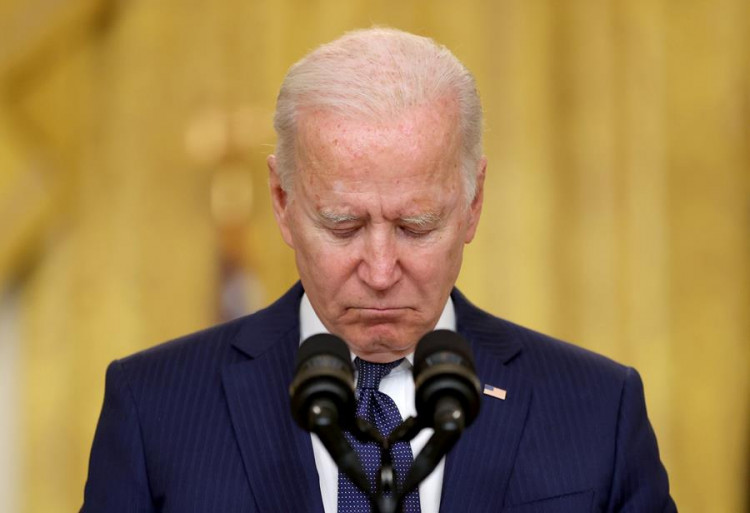President Joe Biden's reelection campaign has hit turbulent waters following a Justice Department report that has thrown his mental fitness into the spotlight. Allegations surrounding the 81-year-old president's health have raised significant concerns within the Democratic Party, with insider sources revealing a growing unease over Biden's capability to serve a second term.
According to a Beltway insider, the pressure on Biden from party donors and key Democratic figures to step down in favor of a younger candidate is mounting, as reported by National Enquirer. "Joe is facing enormous pressure right now from donors and the party to bow out," the source disclosed, highlighting the internal conflict brewing over Biden's insistence on running for reelection despite health concerns.
Biden's medical history, as per available records, paints a picture of a leader grappling with several serious health issues. Notably, the president has undergone surgery for two life-threatening brain aneurysms, which have reportedly caused extensive damage.
Additionally, Biden's diagnosis of atrial fibrillation, an abnormal heart rhythm, significantly elevates his risk of experiencing a stroke, heart attack, and dementia. Other health challenges include the removal of a cancerous skin lesion, peripheral neuropathy-induced nerve damage, concerning weight loss, and persistent coughing bouts, which some medical professionals attribute to potential hardening of the arteries in the brain.
The president's physical frailty has become increasingly visible, marked by an uneven gait and episodes of confusion. Recent public appearances have seen Biden display signs of disorientation, mix up Cabinet members and foreign leaders, and provide inaccurate accounts of his past, raising red flags about his cognitive state.
Special Counsel Robert Hur's report, which emerged from an investigation into Biden's handling of classified documents, has further fueled speculation about the president's mental acuity. Biden's foggy recollection of significant personal and professional milestones, including the year of his son Beau's death and his tenure as vice president, has drawn attention to his memory issues. Hur's decision against charging Biden was partly based on portraying him as "a sympathetic, well-meaning, elderly man with a poor memory," a characterization that has done little to quell concerns about Biden's fitness for office.
Biden's defensive outburst during a press conference, where he insisted on his mental sharpness, did little to assuage doubts. "My memory is fine! I know what the hell I'm doing!" Biden asserted, reacting vehemently to questions about his son's death.
The revelations have led to a decline in Biden's standing in polls, with a significant portion of voters questioning his mental fitness for a second term. This sentiment is compounded by a perceived lack of viable alternatives within the Democratic Party, as deadlines for nominating contests loom, making it challenging to replace Biden as the party's candidate.
High-profile Democrats, including former presidential nominee Hillary Clinton, have voiced concerns about Biden's age as a "legitimate issue" for voters, as reported by Fox News. Behind the scenes, figures like former Presidents Bill Clinton and Barack Obama are reportedly working to sway Biden against seeking reelection, though Biden remains steadfast in his resolve to continue.
As the Democratic Party grapples with this dilemma, the future of Biden's candidacy and the broader implications for the party's prospects in the upcoming election remain uncertain. The internal debate over Biden's fitness for office underscores the challenges facing the party as it navigates the complexities of leadership, public perception, and electoral strategy in a highly polarized political landscape.






